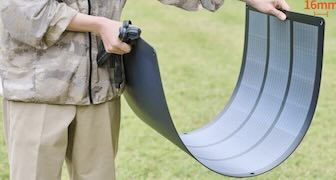SAPPORO, Dec 29 (News On Japan) - A rocket fueled by cow dung and urine is preparing for launch in Taiki, Hokkaido, a town with a bovine population 5 times greater than humans, known as the "Town Close to Space."
"Interstellar Technologies" recently made public the world's first experiment of its kind, demonstrating a rocket engine reaching temperatures over 3000°C using "liquefied biomethane."
In May 2019, a rocket developed and manufactured by the private company became the first in Japan to exceed an altitude of 100 kilometers and reach space.
Currently, they are developing a new rocket called "ZERO," to carry "small artificial satellites" into the cosmos.
"ZERO" is 32 meters in length and weighs over 70 tons.
The experiment was conducted in Taiki Town, Tokachi, with a population of about 5,300 and dairy cows numbering 25,000.
"ZERO" aims to launch in the coming year or later, with further experiments planned.
Source: 日テレNEWS















